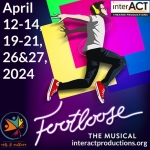For the grammar police with extra time on their hands....
The whole point is context, keeping the reader flowing with the total information not just this detail. What’s the nature of the ms? Scientific/mathematics? Geographic? Fiction? General information? We can bend our approach a little to suit the context: if the total medium doesn’t need to be as rigid, we can be a little less formal.
But it’s still always 1 mile because of number agreement, even if 1.0 mile. One is singular, by definition.
joanne said:
But it’s still always 1 mile because of number agreement, even if 1.0 mile. One is singular, by definition.
En garde!
Here’s another interesting discussion of the question (no more or less authoritative than ours), including a specific reference to 1.0:
I'm currently reading "Word by Word, the Secret Life of Dictionaries," by Kory Stamper, a lexicographer at Merriam-Webster. There's a very funny chapter about her struggle with the word "irregardless." She says, "the spectrum of hatred against 'irregardless' might be unmatched." But after a lot of research and soul searching, she had to concede that it's a real word. All this change is very hard on us grammer police....
I went to grammar school with the author of this book:
The Story of Ain’t by David Skinner is the captivating true chronicle of the creation of Merriam Webster’s Third New International Dictionary in 1961, the most controversial dictionary ever published. Skinner’s surprising and engaging, erudite and witty account will enthrall fans of Winchester’s The Professor and the Madman and The Meaning of Everything, and The Know-It-All by A.J. Jacobs, as it explores a culture in transition and the brilliant, colorful individuals behind it. The Story of Ain’t is a smart, often outrageous, and altogether remarkable tale of how egos, infighting, and controversy shaped one of America’s most authoritative language texts, sparking a furious language debate that the late, great author David Foster Wallace (Infinite Jest) once called “the Fort Sumter of the Usage Wars.”
I had no idea the Merriam’s was controversial in any sense... but then, we don’t use it here.
Anyone else spot the superfluous ‘and’ in the review above? 
jfinnegan said:
Skinner’s surprising and engaging, erudite and witty account will enthrall fans of Winchester’s The Professor and the Madman and The Meaning of Everything, and The Know-It-All by A.J. Jacobs ...
Hmmm. What if you’re a fan of Winchester but despised Jacobs’ book?
(Belated congratulations to your former schoolmate.)
joanne said:
Anyone else spot the superfluous ‘and’ in the review above?
I was too distracted by the erratic application of the Oxford comma.
We’re updating a whole series of policy and procedure manuals at work, in line with newish International Standards. Thankfully our Quality Manager (an exam nerd) knows what I’m like and that I can’t turn off my internal proofreaders’ dialogue.
My ‘speed read’ of the 44-page Food Safety Program found something on most pages - this manual was basically just a retweaking of existing text without fancy cartoons. It’s nice when there’s the support to be yourself, know you can mark-up any correx, and query anything odd, and it’s all taken seriously. The Emergency and Safety Procedures Manual read/query revealed that the recent ceiling renovation that may have removed our smoke alarm might not be illegal.
I believe it would be a step forward if MOL would ban the use of asterisks to disguise vulgar word usage in posts.
It seems juvenile to me — anyone seeing such spelling alterations “hears” the vulgarities in their minds.
I am not recommending vulgar usage — just less offensive writing.
I believe this follows regulated internet moderation for sites accessed by minors as well as adults. The same languages rules are common in many nations around the world. The other option is that your post is totally dropped, and replaced with some inane sentence about following community standards.
Personally, I type in asterisks where, if speaking, I would say "blank" or "blanking." I'm trying to convey that I consider the subject/situation/person I am commenting on obscene or nearly so, without using language I don't much like to see or hear myself. Readers/hearers are free to fill in the blanks as they like.
I'm not using the asterisks to complain about a sticky jam-jar lid, but e.g. about people trying to eliminate or undermine other people's health care.
I think there is another solution for our community blog, MOL: respectful civil discourse.
English is rich in words which describe feelings - love,anger, hate, political frustration etc etc
There would be no lessening of expressing firmly held positions or beliefs — and so much easier on the eyes.
We have been successful cutting back egregious use of the N-word. Maybe F-word would work? Not as ringing in the mind.
This is actually something set by external regulation, similar to film and tv ratings. If a minor can access our site, then there needs to be software in place moderating our language. 
(Many of us used to used other expressions as a shorthand we all understood, anyway. However the software doesn’t always understand runs of letters making up inappropriate words that are parts of perfectly acceptable longer words. This makes health discussions, recipes and history discussions often quite tedious)
thread drift: we’re having a State Election here, and we’re also debating federal constitution matters. May I just quietly scream that criteria is a PLURAL FORM not singular, and that we have an existing singular form that generations of English speakers used perfectly well until the last 20 years or so????!!!
If you only have ONE it is a CRITERION. 
Edited to insert a missing word.
I feel the same way about criteria and criterion, but we're in the minority. A friend who happens to be an English professor tells me I'm obsessed with plurals.
lol
I think I’m mourning the singular, and the rest of the world is blinded by plurality. They talk about ‘referenda’ when they mean referendum, they use data and media in the singular sense (I’ve given up on those), they have no idea that minutiae and antennae are plurals...
I'm fine with using data as an uncountable noun. (What's the term for that?) I do use media as a plural. Antennae is plural when it's biological, but a radio has either an antenna or some antennas.
See, a hundred years ago the distinction was whether the word stem was Greek, Latin etc and that would determine how the rest of the declination, transformation etc went. Around Forty or fifty years ago, there was a school of thought that followed the biological vs mechanical/mineral divide instead. Soon after this, ‘transformational grammar’ became exceptionally popular as a higher-level pedagogical notion even in high schools (totally confusing students who’d never use those concepts outside school) which inevitably meant simplification had to come to ‘clarify’ things again.
Except it hasn’t.
And the world has changed in the meantime.
But I’ll still cry in my heart, every time an ignoramus gets any of it wrong. 
joanne said:
See, a hundred years ago the distinction was whether the word stem was Greek, Latin etc and that would determine how the rest of the declination, transformation etc went.
What is the plural form of octopus? is it octopi, octopodes, or octopusses?
What about platypus? Should multiple examples be referred to as platypi or platypusses?
(A friend has decided that rather than trying to decide what the plural form should, technically, be called, he has opted for the term 'platycats'. Solves everything, methinks.)

{She tucks her editor’s blue pen back behind her ear, chuckles quietly, and wonders whether she should have a warm drink or crawl back into bed since it is -after all! - 3:10a.m.}
Everybody has already seen the "Copy Edit This" quizzes in the NYT, right? Embarrassingly satisfying, if sometimes repetitive. : )
I'm all for just cursing, but I think an awesome solution would be for everyone to just adopt "The Good Place" solution of word substitution -- like "holy forking shirtballs!"
mjc said:
Personally, I type in asterisks where, if speaking, I would say "blank" or "blanking." I'm trying to convey that I consider the subject/situation/person I am commenting on obscene or nearly so, without using language I don't much like to see or hear myself. Readers/hearers are free to fill in the blanks as they like.
I'm not using the asterisks to complain about a sticky jam-jar lid, but e.g. about people trying to eliminate or undermine other people's health care.
mjc said:
Everybody has already seen the "Copy Edit This" quizzes in the NYT, right? Embarrassingly satisfying, if sometimes repetitive. : )
I have not. Love them. 
joanne said:
We don’t get them here, are they behind the pay wall?
I think you get 10 articles per month free from NY Times. Not sure if this would qualify. I subscribe so I didn't notice.
Not sure puzzles are included in NYT online. I know that the crossword puzzle is a separate subscription.
sac said:
Not sure puzzles are included in NYT online. I know that the crossword puzzle is a separate subscription.
These aren't puzzles; they are quizzes.
Sponsored Business
Promote your business here - Businesses get highlighted throughout the site and you can add a deal.
Featured Events
-
Stephen Whitty Presents - Hometown Movie Stars: The Celebrated Actors Of CHS
May 6, 2024 at 7:00pm
































Say it aloud: "One point oh ... miles," right?
Disclosure: I have a little mind. Consistency is one of its hobgoblins.